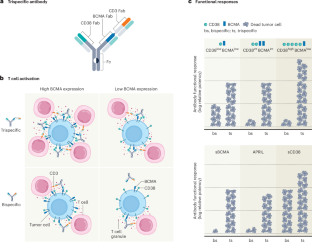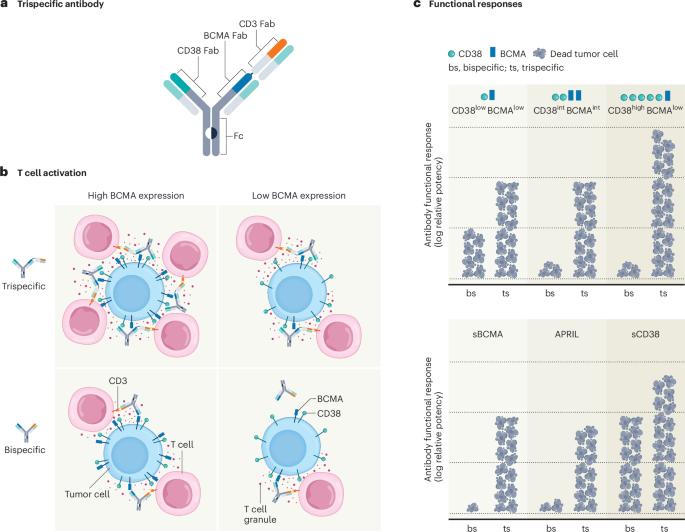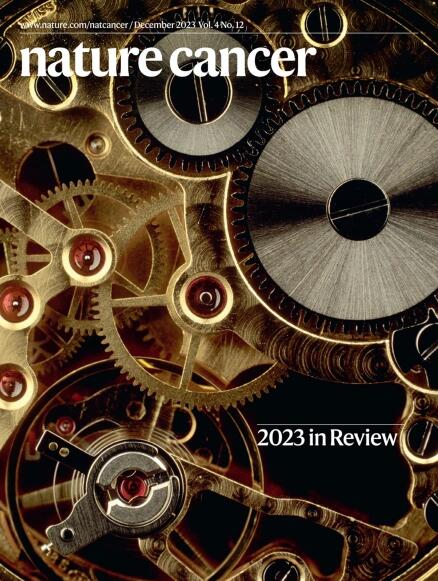多发性骨髓瘤的抗体阳性率
IF 23.5
1区 医学
Q1 ONCOLOGY
引用次数: 0
摘要
在不断寻找创新疗法以抗击难治和复发癌症的过程中,一项针对多发性骨髓瘤的新临床前研究表明,与目前基于抗体的疗法相比,通过在一个T细胞靶向三特异性抗体中靶向两个抗原来提高结合活性,可以增强抗肿瘤活性并降低肿瘤逃逸的可能性。本文章由计算机程序翻译,如有差异,请以英文原文为准。


Antibody avidity meets multiple myeloma
In the ongoing search for innovative treatments to combat refractory and relapsed cancer, new preclinical work in multiple myeloma shows that increasing binding avidity by targeting two antigens in one T cell-engaging trispecific antibody boosts anti-tumor activity and reduces the likelihood of tumor escape relative to current antibody-based therapies.
求助全文
通过发布文献求助,成功后即可免费获取论文全文。
去求助
来源期刊

Nature cancer
Medicine-Oncology
CiteScore
31.10
自引率
1.80%
发文量
129
期刊介绍:
Cancer is a devastating disease responsible for millions of deaths worldwide. However, many of these deaths could be prevented with improved prevention and treatment strategies. To achieve this, it is crucial to focus on accurate diagnosis, effective treatment methods, and understanding the socioeconomic factors that influence cancer rates.
Nature Cancer aims to serve as a unique platform for sharing the latest advancements in cancer research across various scientific fields, encompassing life sciences, physical sciences, applied sciences, and social sciences. The journal is particularly interested in fundamental research that enhances our understanding of tumor development and progression, as well as research that translates this knowledge into clinical applications through innovative diagnostic and therapeutic approaches. Additionally, Nature Cancer welcomes clinical studies that inform cancer diagnosis, treatment, and prevention, along with contributions exploring the societal impact of cancer on a global scale.
In addition to publishing original research, Nature Cancer will feature Comments, Reviews, News & Views, Features, and Correspondence that hold significant value for the diverse field of cancer research.
 求助内容:
求助内容: 应助结果提醒方式:
应助结果提醒方式:


